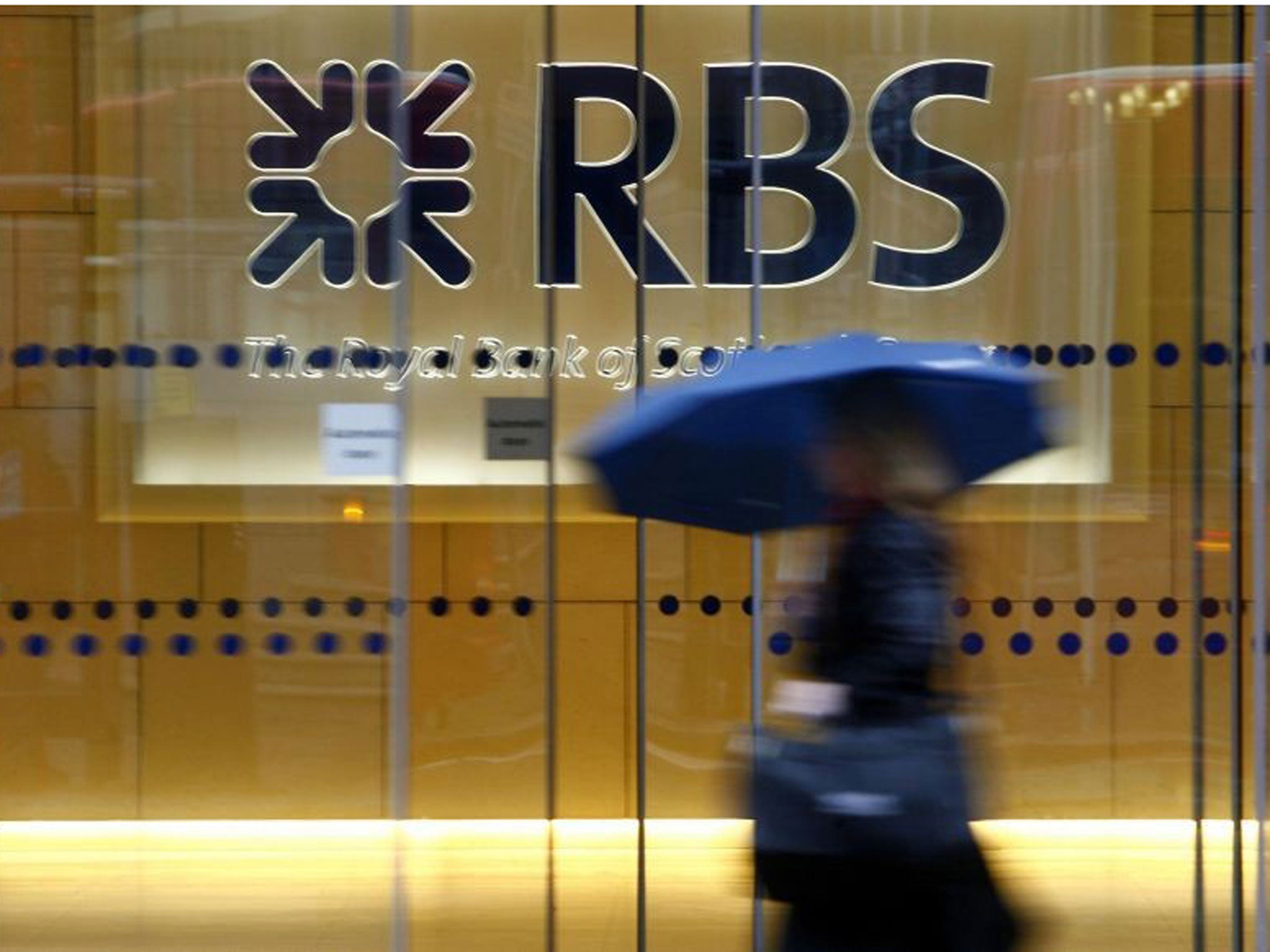RBS 'internal bad bank' solution fails to please City as shares dip 6 per cent
Osborne says ‘fenced off’ bad assets will smooth way towards sale of troubled bank

Your support helps us to tell the story
From reproductive rights to climate change to Big Tech, The Independent is on the ground when the story is developing. Whether it's investigating the financials of Elon Musk's pro-Trump PAC or producing our latest documentary, 'The A Word', which shines a light on the American women fighting for reproductive rights, we know how important it is to parse out the facts from the messaging.
At such a critical moment in US history, we need reporters on the ground. Your donation allows us to keep sending journalists to speak to both sides of the story.
The Independent is trusted by Americans across the entire political spectrum. And unlike many other quality news outlets, we choose not to lock Americans out of our reporting and analysis with paywalls. We believe quality journalism should be available to everyone, paid for by those who can afford it.
Your support makes all the difference.Royal Bank of Scotland will park £38bn of toxic assets in an internal “bad bank” fenced off from the rest of the business. While the decision was hailed by the Chancellor, George Osborne, as an important step towards returning the taxpayer-owned bank to private hands, there was disappointment in some quarters that RBS was not being split outright into a “good” and a “bad” bank.
The announcement, coupled with news that the bank had lost £634m in the third quarter of 2013, prompted a 6 per cent drop in RBS’s share price today.
Mr Osborne told the BBC’s Today programme that the bank had been “painfully honest” about the weakness of its position, and that creating an internal bad bank “would make it easier to sell off the bank and get our money back”. But he admitted that the sale was unlikely to happen before the 2015 general election. “I think, sadly, it is still some way off.”
The announcement was welcomed by the Bank of England, which said it would make RBS “a more resilient institution that is better able to support the real economy without any expectation of further government support”. But Andrew Tyrie, the Tory chairman of the Commons treasury committee, said he feared it could prove to be a missed opportunity.
The new arm of the bank, called the capital resolution division, will take over loans predating the 2008 banking crisis which it is feared will never be repaid, including £9bn worth of assets from Ulster Bank, whose future is to be decided in a sweeping review of RBS’s structure announced by the new chief executive, Ross McEwan. The review panel will report in February and is expected to recommend heavy cost-cutting.
The Bank of England’s support for the latest measure contrasted with the view expressed by the former Governor, Sir Mervyn King, that RBS should be split in two. Mr Tyrie, whose committee also favoured splitting the bank, told the BBC’s World at One programme: “We’ve had several opportunities to put this right. We could have put this right in 2008 and had a full split then. The second opportunity came and went in 2010.
“Both of those – there were difficult decisions to take because of the politics involved. I quite understand, particularly in the emergency situation of 2008 why a small residual holding was left which complicates matters a lot and why it wasn’t fully nationalised.
“Now we’ve had this third opportunity. We are going to analyse very carefully whether this is a missed opportunity or whether the Government’s got it right this time, and I hope they have because that’s what the economy needs.”
Alistair Darling, who as Chancellor handled the 2008 rescue of the bank by the taxpayer, said it was not possible to split the bank at the time. “We had a matter of hours to stop it collapsing. The restructuring option simply wasn’t available there,” he said.
“RBS at that time was probably one of the biggest, if not the biggest bank in the world, and it took a long time in order to establish what was good in the bank and what was bad.”
Q&A
Q Why is the RBS bad bank not like Northern Rock’s bad bank?
A RBS now has a “bad bank within a bank”, rather than the Rock, where the two are separate entities. The Rock was restructured so the Treasury could capitalise on its shares in the “good” bit, but George Osborne has said this time that he does not want a quick sale. RBS boss Ross McEwan also said that setting up an external nationalised bank could have taken too long and potentially broken European Union rules.
Q How ‘bad’ is it?
A Five years ago RBS identified a staggering £268bn of bad loans and financial instruments. Today that is down to £38bn. This package will now be sold off, hopefully within the next three years, and Mr McEwan believes that given recovery they will actually fetch reasonable prices. The Rock’s bad bank had about £50bn of assets.
Q So when can we cash in
A The Chancellor said today that it was unlikely RBS would be sold before the election.
Join our commenting forum
Join thought-provoking conversations, follow other Independent readers and see their replies
Comments